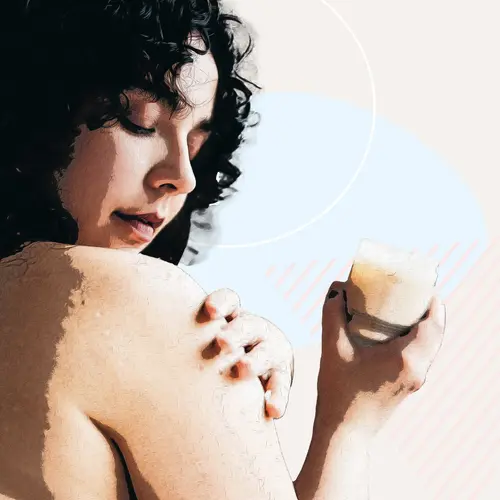Hypohidrosis, sometimes called anhidrosis, is when your body has trouble cooling down by sweating. Typically when you get hot, your sweat glands make perspiration (sweat) that evaporates from your skin and takes heat with it.
Someone with severe hypohidrosis will produce little to no sweat, even in hot weather or during physical activity.
If you have mild hypohidrosis, it could be hard to diagnose. You might not even know you have it. If you have more serious hypohidrosis, you should seek treatment to avoid serious health consequences.
Symptoms
Hypohidrosis can happen over your entire body, a few random spots, or in just one area. If it doesn’t affect your whole body, other parts of your body might try to produce extra sweat to make up for the areas where there's little or no sweat.
Along with a lack of perspiration, your symptoms could include:
- Dizziness
- Muscle cramps
- Weakness
- Feeling overheated
- High fevers
- Nausea
You might have all or none of these other side effects, but the most important to look out for is abnormal or total lack of sweating. Your symptoms of hypohidrosis may vary, and so can the potential causes.
Causes
Possible causes of hypohidrosis can be broken down into a few different categories:
- Genetic condition
- Skin injury
- Connective tissue disease
- Drugs
Genetic condition. If you were born with a nerve condition, metabolic disorder, nervous system disorder, or other genetic condition, you could develop hypohidrosis, too.
Skin injury. After skin injuries like burns, radiation therapy, or extremely clogged pores, your sweat glands might be left in poor condition and unable to produce sweat.
Connective tissue disease. Certain connective tissue diseases leave scar tissue that impairs your sweat glands.
Drugs. A lot of medications, like morphine and botox, affect how your sweat glands work.
Severe dehydration can cause hypohidrosis. It’s also possible that you never find out why you have hypohidrosis. Give your healthcare provider a detailed medical history to better your chances of finding out why you are having problems sweating.
Possible Complications
Depending on the cause of your hypohidrosis, you could have unique complications. Most aren’t life-threatening, however. Heat-related illnesses are the most common and the most important challenge you’ll face. Because your body has trouble cooling itself down, you’ll be more likely to get heat cramps, heat exhaustion, and heatstroke.
Heat cramps. Heat cramps are involuntary muscle pains or spasms that usually happen in your arms, legs, abs, or back. Rest, cool down, and drink water if you have heat cramps.
Heat exhaustion. If you are weak, feel nauseated, and have a high heart rate you might have heat exhaustion. Cool down and seek medical help if you don’t feel better after an hour.
Heatstroke. This is the most serious complication of hypohidrosis. If you have a temperature of 103℉, are flushed, and feel disoriented you need to get emergency help. Heatstroke can be life threatening if it’s not treated quickly.
Don’t let the possible complications of hypohidrosis scare you. You can still take part in your regular activities, but you should be aware of heat-related illnesses and be prepared to treat yourself if you get overheated.
Treatments
To confirm that you have hypohidrosis, you can visit your medical provider and have them do a test. They might take a skin biopsy of the area where you aren’t sweating, or they can cover you with a powder that changes color with sweat and put you in a hot room. If your results come back negative but you are still having problems sweating, keep looking for a solution.
Sometimes, children with hypohidrosis start to sweat more as they grow up, and their condition permanently improves. Adults with damaged or a lack of sweat glands probably won’t see long-lasting changes in their hypohidrosis, but they can do things to make it more tolerable.
To keep your hypohidrosis from seriously affecting your lifestyle, you can try the following:
- Avoid tight, thick clothing when it’s warm outside.
- On hot days, stay inside or find ways to stay cool, like spraying water on yourself.
- Pay close attention to your body temperature when you’re in hot situations.
- Become familiar with heat-related illnesses and the best ways to treat them.
- Exfoliate if your hypohidrosis is caused by clogged pores.
- Explore new medication if your hypohidrosis is a side effect of your current prescription.
Having hypohidrosis can be life changing, but you can find ways to live normally. Do your best to take preventative measures and avoid heat-related illnesses, and don’t hesitate to find emergency help if you can’t cool down with at-home action.

